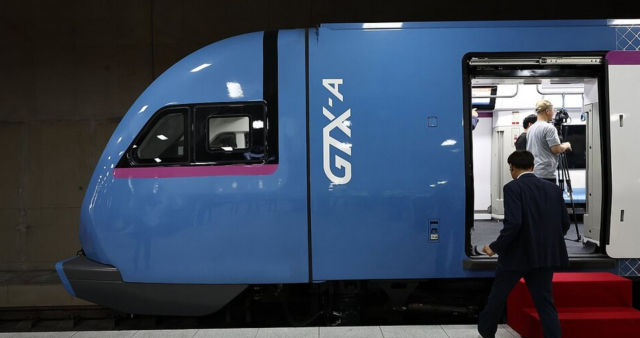
SEOUL, May 16 (AJP) - Two leading contenders in South Korea’s upcoming presidential election have pledged to extend the country’s high-speed underground commuter rail system far beyond the capital, positioning rapid transit as a central campaign promise.
Lee Jae-myung of the liberal Democratic Party and Kim Moon-soo of the conservative People Power Party both unveiled plans to expand the Great Train Express (GTX) system, a high-speed undergroun rail network in the Seoul metropolitan area. Each candidate has incorporated nationwide rail expansion into their 10-point policy platforms, aiming to connect distant regions through a system modeled after the GTX system.
Both candidates argue that extending rapid transit to five major regions across the country would help disperse the concentration of economic and social activity around Seoul, a longstanding concern in South Korea’s regional development policy.
Lee’s proposal focuses on expanding service in the Seoul area and to the southeast region, Daegu-North Gyeongsang, the central region, and Honam. He also pledged timely completion of the GTX-A, B, and C lines, with potential extensions reaching outer metropolitan areas and Gangwon Province. New routes, labeled GTX-D, E, and F, would be developed in phases.
Kim, similarly, has framed a “country connected by GTX” as a key policy pillar. His plan envisions an express rail network linking five major metropolitan areas, continuing a trend toward megacity integration championed by the Yoon administration in early 2024.
Their shared emphasis on high-speed rail reflects growing bipartisan support for addressing urban-rural divides.
Currently, disparities in transit access between the capital and outlying regions are stark. The Seoul area operates 11 metropolitan rail lines, including the GTX-A. By contrast, non-metropolitan regions are served by just two lines, both connecting Daegu and North Gyeongsang Province.
Rail accounts for 27.1 percent of intercity travel in the capital region, compared with only 0.4 percent in Gwangju-South Jeolla, and under 10 percent in most other regions.
Still, the ambitious expansion faces significant financial and logistical challenges.
Building rapid transit lines costs approximately 71.2 billion won per kilometer — more than double the cost of metropolitan roads and over 10 times that of Bus Rapid Transit systems. The first three GTX lines alone carry a projected price tag of nearly 12 trillion won.
Experts remain cautious. A Korea Transport Institute survey of 15 transportation scholars cited “insufficient railway demand in provincial areas” as the foremost concern.
As rural populations decline, critics warn that costly infrastructure may not be sustainable. Professor Lee Su-beom of the University of Seoul noted that rail systems face steep operational costs, particularly in energy use, and predicted inevitable deficits without stronger government subsidies.
To make nationwide expansion viable, the institute concluded, central government support would need to rise by at least 10 percentage points to compensate for declining contributions from local governments.
Copyright ⓒ Aju Press All rights reserved.

